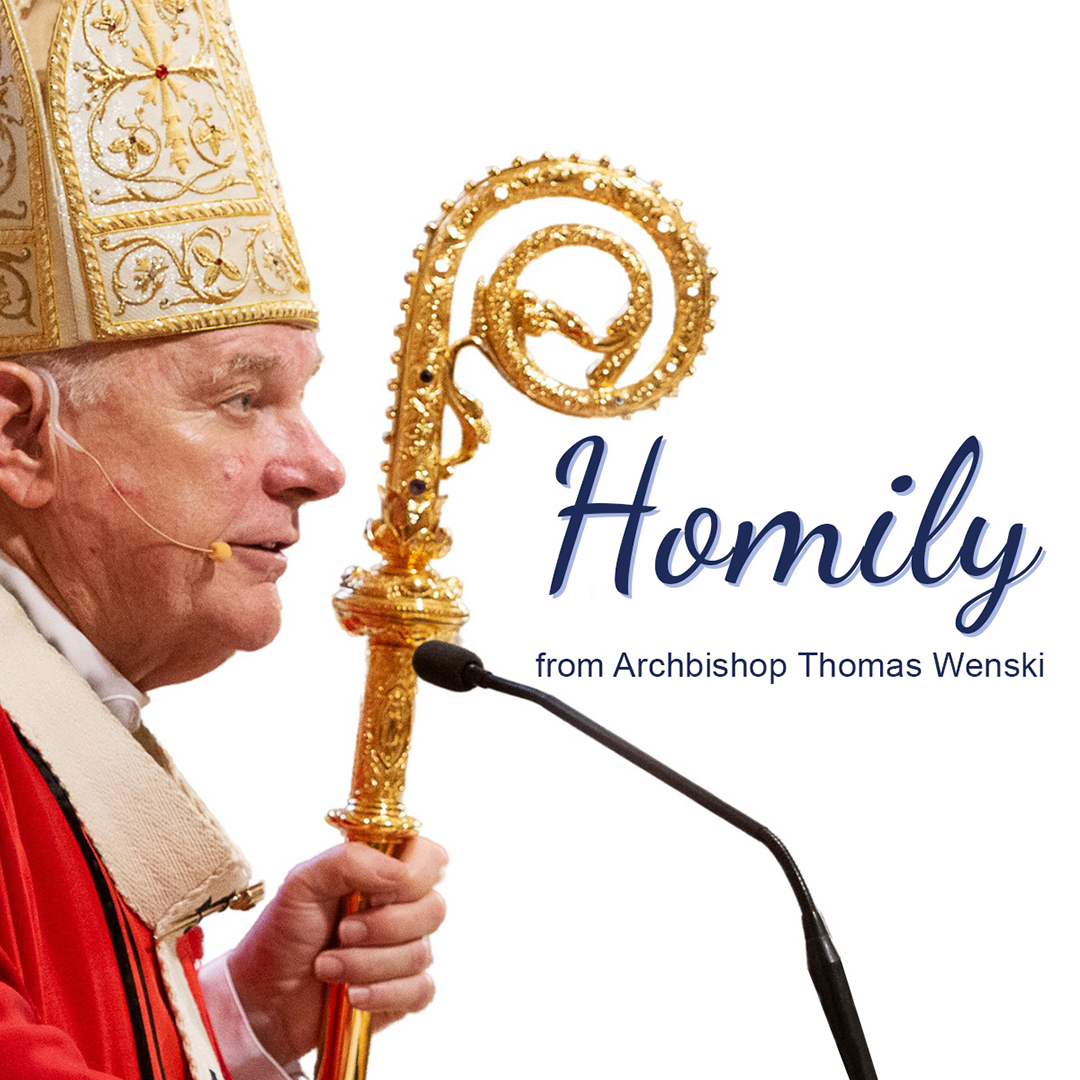By Archbishop Thomas Wenski - The Archdiocese of Miami
Archbishop Thomas Wenski preached this homily while celebrating Mass at Good Shepherd Parish in Miami, Oct. 5, 2024. Afterward, he blessed the new soccer field.
The world in which Jesus lived in was a world where marriage was taken lightly because divorce was managed easily. Welcome to our world today. In fact, today in the U.S., there are more adults who are not married or no longer married than there are adults who are married. So, if Jesus’ word were hard for his contemporaries to accept, we shouldn’t be surprised that those words would be hard for us and our contemporaries to accept.
Jesus doesn’t deny that life can be messy. But he is calling us to go back to the beginning to uncover the original plan of God. He is calling us to return to the roots of marriage and to see the commitment of husband and wife in the light of God’s seeing. “It is not good for man to be alone,” God says in the Book of Genesis. God intends for man and woman to be joined in Marriage. And among the purposes of marriage is raising children. “Let the children come to me, do not prevent them, for the Kingdom of God belongs to such as these.”
Jesus’ insistence on marriage as a lifelong commitment protects the woman from being treated as a disposable possession of her husband and to provide and assures the optimal conditions for raising offspring.
Of course, experience teaches us that things do go terribly wrong. People do make mistakes. Infidelities do happen. Spouses become victims and oppressors. We cannot deny the hurt that so many, so many of us, endure. Marriages do collapse. The walking wounded of broken marriages cry out for and do need compassion and healing. The Church does try to make provision for human failures and inadequacy. Anyone in a failed marriage can seek an annulment, and though the process might seem slow, it can help provide a measure of healing to many.
But the best cure is prevention. It takes about ten years of seminary formation for someone to be ordained a priest, future nuns spend years as postulants before they take vows. Yet, some couples are annoyed when they are told to request a marriage date at least six months in advance. And truth be told, more time and expense are devoted to the planning of the wedding and reception than planning for the marriage which is to endure “till death do you part”.
Marriage, Jesus tells us, is a lifetime commitment, but he insists that this was God’s original plan for us. Human beings were created for community, not isolation. Today we find many people bewitched or beguiled by a false sense of autonomy – that we make ourselves, that we have no duties or obligations beyond what we have chosen to accept. (This false sense of human autonomy is what some use to justify even the killing of a baby in her mother’s womb, as the proponents of Amendment 4 do.)
“It is not good for man to be alone.” But if this God’s original plan, Man’s original sin has made living in any community – from the family to the nation and beyond - difficult. Every year when I celebrate Mass for couples celebrating significant anniversaries – like their 25th or 50th – I say to the wife or the husband, “Que aguante, verdad?” Most do not disagree. Marriage is hard work; it requires self-sacrifice and commitment for the long haul, and it requires God’s grace, which is never lacking for those who seek it. And the Church offers various marriage enrichment programs: date nights, marriage encounters, Retrouvaille, to name a few.
We can only realize ourselves as human beings – and become the men or women that God calls us to be – only through the sincere gift of ourselves. Thus, for the Christian, the way to true happiness – or, to put it in a theological way – to beatitude – is found not through self-seeking or self-assertion but through self-giving and self-sacrifice. Not through autonomy, but mutual interdependence.
For the Christian, the way to happiness is love – which requires us to take up the cross and follow him. Jesus promises us glory – but the road to glory passes along the way of the Cross, the way of self-forgetting love.
The Russian novelist Leo Tolstoy, in “Anna Karenina” says, “Happy families are alike; every unhappy family is unhappy in its own way.” In other words, there are many ways to go wrong; but the one way to go right is the way of love.
Let me end with the story of a young boy who, when he came home from his catechism class, his mom asked him what he had learned that day. He answered that the teacher had told them about the water changing into wine (at the wedding feast of Cana). So, his mother said, “Well, what did you learn about that? He replied, “Well, if you’re going to have a wedding, you ought to invite Jesus and Mary.”
The breakdown of the family is a series issue for society – for strong societies to thrive, they need strong families.

